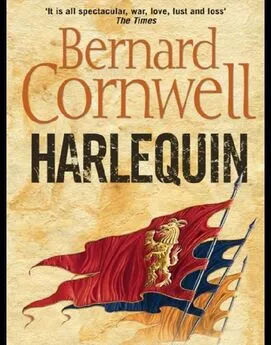Bernard Cornwell - Stonehenge
- Название:Stonehenge
- Автор:
- Жанр:
- Издательство:неизвестно
- Год:неизвестен
- ISBN:нет данных
- Рейтинг:
- Избранное:Добавить в избранное
-
Отзывы:
-
Ваша оценка:
Bernard Cornwell - Stonehenge краткое содержание
Bernard Cornwell's new novel, following the enormous success of his Arthurian trilogy (The Winter King, Enemy of God, and Excalibur) is the tale of three brothers and of their rivalry that creates the great temple. One summer's day, a stranger carrying great wealth in gold comes to the settlement of Ratharryn. He dies in the old temple. The people assume that the gold is a gift from the gods. But the mysterious treasure causes great dissension, both without from tribal rivalry, and within. The three sons of Ratharryn's chief each perceive the great gift in a different way. The eldest, Lengar, the warrior, harnesses his murderous ambition to be a ruler and take great power for his tribe. Camaban, the second and an outcast from the tribe, becomes a great visionary and feared wise man, and it is his vision that will force the youngest brother, Saban, to create the great temple on the green hill where the gods will appear on earth. It is Saban who is the builder, the leader and the man of peace. It is his love for a sorceress whose powers rival those of Camaban and for Aurenna, the sun bride whose destiny is to die for the gods, that finally brings the rivalries of the brothers to a head. But it is also his skills that will build the vast temple, a place for the gods certainly but also a place that will confirm for ever the supreme power of the tribe that built it. And in the end, when the temple is complete, Saban must choose between the gods and his family. Stonehenge is Britain's greatest prehistoric monument, a symbol of history; a building, created 4 millenia ago, which still provokes awe and mystery. Stonehenge A novel of 2000 BC is first and foremost a great historical novel. Bernard Cornwell is well known and admired for the realism and imagination with which he brings an earlier world to life. And here he uses all these skills to create the world of primitive Britain and to solve the mysteries of who built Stonehenge and why. 'A circle of chalk, a ring of stone, and a house of arches to call the far gods home'
Stonehenge - читать онлайн бесплатно ознакомительный отрывок
Интервал:
Закладка:
Mereth had taken a wife from the women of Sarmennyn and he too was wondering whether to go or stay. 'I'd like to see my father again,' he said, 'and Rai wants to see Ratharryn.' Rai was his wife.
Saban tipped a bag of beach sand into the new boat, then rubbed it up and down with a stone, smoothing the wood. 'It will be good to see Galeth again,' Saban said, and he thought it would also be good to visit his father's grave, but he could think of no other reason to take him back to his childhood home. He touched the nutshell under his jerkin, then rocked back on his heels and wondered why he was so reluctant to return. Of course there was fear of Lengar, but Saban possessed the nutshell charm and he believed it would work, so why was he frightened of going home? If the temple was built then Slaol would return and all would be well, and he glanced out into the river where the stones floated on their boats. When those stones reached the Sky Temple the dream would be completed, and then what? Would everything change? Would Slaol scorch through the sky to obliterate winter and sickness? Or would the world change slowly? Would anything happen at all?
'You look worried,' Mereth said.
'No,' Saban said, though he was. He was worried by his unbelief. Camaban believed, Scathel believed and Aurenna believed, indeed most of Kereval's people were sure that they were changing the world, but Saban was not certain he shared their faith. Perhaps, he decided, it was because he alone had known Camaban as the crooked child, as the outcast stutterer, the despised son. Or perhaps it was because he had fallen in love with this river and its banks. 'I was thinking,' he said, 'maybe I could share this boat with Lewydd? Become a fisherman?'
'All you'll ever catch is a cold,' Mereth said. He shaved a trace of wood so that the rising curve of the prow looked perfect. 'No,' he said, 'I reckon you and I are going home, Saban, and we might as well get used to it. It's what our wives want and what wives want they seem to get.'
The summer passed and the winds did not abate and Saban doubted the stones would leave the river that year, but then, just as it had in the very first year, the approaching autumn brought a spell of calm seas and gentle winds. Lewydd waited two days, spoke to the fishermen, prayed at Malkin's shrine and then declared the small fleet could leave. Food and water were put back into the boats, the warriors took their places, and Mereth and Saban settled their families in two of the long, single-hulled craft that would escort the stones eastwards. Scathel sacrificed a heifer and splashed its blood on the tightly lashed stones, Kereval kissed his many wives and it was time to go.
The heavily laden boats went downstream to the lee of the headland in the river's mouth with the paddlers chanting a song to Erek. The folk left behind stood on the river bank and listened to the strong voices fade. They listened until there was no sound but the running of the river and the sigh of the wind. Sarmennyn had kept faith. It had sent its temple to Ratharryn and all the folk could do now was wait for the return of their chief, their high priest and their treasures.
The weather was placid, and it needed to be, for the boat holding the mother stone was clumsy and slow. When Saban had first made this voyage it had seemed swift, but then he had been in a single-hulled boat that had cut through the water like a knife slicing flesh, but the big, triple-hulled boats seemed to batter their way through the waves. The tide carried them and the paddlers worked themselves to weariness, but it was still an agonisingly slow voyage. Saban and his family shared one of the boats carrying Kereval's warriors and that was frustrating for the boat could have leapt ahead of the fleet, but instead had to stay with the lumbering stone-carriers. The mother stone was the slowest, and the two small boys in the centre hull had to bail water constantly. If the boat sinks, Scathel had warned the boys, they would be blamed and would be allowed to drown, and the warning kept them hard at work scooping with their sea-shells. Aurenna clutched Lallic, while Leir had a leash about his waist so that when he fell overboard he could be hauled back like a fish. The sun shone, proof that Erek approved their voyage.
They anchored at each tide's turning and set off when the water flowed east again. It did not matter whether that turning came by day or night; that they slept between the tides and, as often as not, travelled beneath the stars. The moon was a sickle, low in the sky, so there seemed little danger of Lahanna's jealousy thwarting the journey. Day after day, night after night, the stones crept eastwards until at last, after nine days and nights, the sun rose to show the green hills close on either bank, with the great shining mud flats slowly drying as the river shrank. They paddled hard, racing to keep with the dying tide and competing with each other as the banks came closer and at last Sul's mouth came into view. The paddlers drove the boats up into the narrower stream, between the high mud flats, past fish and eel traps, to where a small settlement of fishermen had their huts near the palisade Lewydd had made on the very first journey of the stones, and there at last they could rest. Scathel gave a stone axe-head to the chief of the settlement in return for a scrawny goat that he sacrificed to Erek as thanks that the most dangerous part of the journey was done. The fisherfolk watched bemused as the Outfolk warriors danced to the setting sun. In times past there would have been nothing but enmity between the two groups, but the settlement gave their allegiance to Drewenna and the river folk had become used to the voyaging stones.
Lewydd sent one of the fishermen with a message to Kellan, Drewenna's chief, asking of him to send men to haul the sledges which waited at the end of the first river journey, and next morning they started up the Sul with the incoming tide. That first day was easy enough, but after then the tide was of small help and they had to pole the boats upstream. It took three days to reach Sul where Kereval decreed they would rest for two days. Aurenna and Saban took the children to splash in the hot spring that bubbled over the rocks to make a pool amidst ferns and moss. The rocks above the pool were strewn with scraps of wool where petitioners had left their prayers for the goddess and all that day a succession of the lame, the crippled and the sick came to the shrine to beg Sul's help. Aurenna washed her hair in the spring and Saban combed it out for her and the folk of Sul watched in amazement for she was so tall, so clean and so calm. One man asked Saban whether she was a goddess, while another offered him seven oxen, two axe-heads, a bronze spear and three of his daughters if Aurenna would be his wife.
They spent that night in one of the huts Stakis had made for the meeting of the tribes. Saban lit a fire on which they cooked trout and then he watched Aurenna until she became tired of his gaze. 'What is it?' she asked.
'Are you a goddess?' Saban asked.
'Saban!' she said reproachfully.
'I think you are a goddess.'
'No,' she replied with a smile, 'but Erek does want me for something special. That is why we travel.' She knew he was worried for her and so she reached over and touched his hand. 'And Erek will preserve us. You'll see.'
Saban woke in the dawn to discover that a party of Ratharryn's warriors had come to the shrine during the night. The leader of the warrior band was Gundur, one of Lengar's closest companions and the man who had dragged Saban from his hut on the morning that he had been enslaved to Haragg. Gundur had come from south of the river, from Drewenna, and Saban saw how Gundur and his men strutted through Sul's huts. This was Kellan's territory, but the spearmen of Ratharryn were lords here. Saban ate with Gundur's men and listened as they told of Lengar's wars: how he had seized a herd of Cathallo's oxen; how he had raided deep into the land of the people to the east of Ratharryn; and how he had forced a heavy tribute from the people who lived by the sea at the mouth of the River Mai. Now, Gundur said, even as they spoke, Lengar was at Drewenna. He had gone there, Gundur explained, to fetch Kellan's spearmen. 'The harvest is in,' Gundur said, 'so what better time to attack Cathallo? We'll finish them for ever. You can join us, Saban. Share the plunder, eh?' Gundur smiled as he offered the invitation. He seemed friendly, hinting that the old enmity between Saban and Lengar was long past.
'What brings you to Sul?' Saban asked.
'You,' Gundur said. 'Lengar heard the last of the stones had come and sent us to find out if it were true.'
'It is true,' Saban said, gesturing at the boats, 'and you should tell Lengar that Kereval of Sarmennyn has come with them to receive the treasures.'
'I shall tell him,' Gundur promised, then turned to watch as Aurenna walked from the huts to the river. She carried a water-skin that she stooped to fill, then carried back, and Gundur watched her every step. 'Who is that?' he asked in an awed voice.
'My wife,' Saban said coldly.
'I shall tell Lengar you're both here. He'll be pleased.' Gundur stood. He hesitated a heartbeat and Saban wondered if he was about to mention Jegar's death, which had taken place so close to where they had eaten, but Gundur merely asked if Saban intended to carry the stones up river that same day.
'We do,' Saban said.
'Then we shall see you in Ratharryn,' Gundur said, and he led his men south while Saban and his family went back to the stones and continued the weary journey of poling the heavy boats against the river's flow. So now Lengar knew that Aurenna had come to the heartland, and knew she was beautiful; Saban surreptitiously touched the nutshell that hung at his neck.
The journey became much easier when they were half a day out of Sul for now the river was shallow enough for men to wade and so haul the boats, and next day they came to a place where a smaller river joined the Sul from the south and Lewydd turned the boats into that narrower stream. The current was less strong, almost placid, and they made easy progress, coming that evening to the place where the water was at last too shallow to carry the boats and where the great sledges waited. Next day men arrived from Drewenna and they heaved the eleven small stones off the boats and on to the sledges, then hauled the boats themselves on to even larger sledges.
The mother stone alone remained and it took a whole day to align the boat with a sledge on the shore and to cut more rollers, and next day, using oxen to drag the boulder, they slid the mother stone from boat to sledge. They hauled the boat ashore the following day, by which time the first stones were already being dragged eastwards.
It took three days to cross the low watershed. They followed a grassy track that climbed gently and then fell, just as gently, to the bank of the river which flowed eastwards. Here the boats were lifted from the sledges and relaunched and the stones were carried back aboard. For five years Lewydd and his men had been doing this. Five years of lifting and levering, heaving and sweating, and now the great task was almost finished. It took three days to carry all the stones off their sledges and on to the boats, but at last the job was done and it would never need to be done again.
Next morning they floated the boats down the river and the men sang as they rode the current. They did not hurry and the only effort that was ever needed was an occasional shove of a pole to drive a boat around an obstruction. The sun shone, filtering through the last green leaves as the river slowly twisted between banks thick with feathery willow-herb. Corncrakes sounded harsh from the fields and woodpeckers stuttered in the trees. The sun shone. When they passed Cheol, Ratharryn's southernmost settlement, the folk lined the river bank to dance and sing a welcome to the stones. 'Tomorrow!' Saban called to them. 'We shall be at Ratharryn tomorrow! Tell them we're coming!'
Читать дальшеИнтервал:
Закладка:


